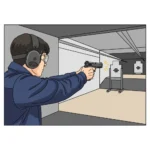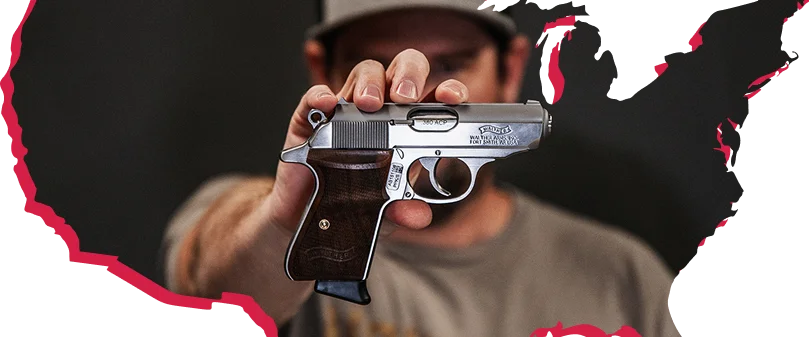
But what exactly is the SHORT Act, and how could it impact you as a gun owner looking to sell a firearm? Let’s break it down.
What is the SHORT Act?
If passed, the SHORT Act would:
- Enables Second Amendment rights by eliminating arbitrary restrictions on common firearms.
- Reduces federal ability to reclassify firearms without Congressional approval.
- Reduces restrictions on on lawful gun owners, many of whom are veterans and disabled shooters who use stabilizing braces for support and safety.
Senator Roger Marshall (R-KS) reintroduced the bill in 2025 and condemned the ATF’s rule. He warned that bureaucrats must not infringe on Constitutional rights without due process or legislation.
The Bipartisan Pushback Against ATF
The SHORT Act has gained support from a wide array of Second Amendment advocacy groups, including:
- Buckeye Firearms Association
- Gun Owners of America (GOA)
- National Association for Gun Rights
In a recent letter, over 20 gun rights groups urged Congress to restore the SHORT Act in 2025. They warned the ATF’s actions create confusion, criminal liability, and force compliance through coercion.
Why Some Oppose the SHORT Act
Many view the SHORT Act as a win for Second Amendment rights, but opponents warn it weakens public safety and strips oversight from weapons they believe need tighter regulation. Critics of the SHORT Act, including gun control advocates and some law enforcement groups, raise the following concerns:
- Short-barreled rifles are more concealable and deadly, and rolling back regulations could increase their use in criminal activity. Historically, SBRs were included in the National Firearms Act precisely because of their potential for misuse.
- Critics argue that stabilizing braces let individuals sidestep existing laws, giving them access to compact rifles without undergoing the vetting and accountability the NFA requires.
- The ATF’s rule wasn’t an overreach, they argue, but a necessary clarification of an evolving and exploited loophole. As stabilizing braces became more common, their use often went beyond helping disabled shooters and into tactical advantages typically reserved for regulated firearms.
- Opponents also emphasize that removing SBRs from the NFA could weaken other gun laws and erode widely supported safety measures.
While the SHORT Act’s supporters argue it defends lawful gun owners, critics warn it may unintentionally open the door to greater risks in urban areas, complicate law enforcement efforts, and escalate the arms race among criminals.
What’s Next for the SHORT Act?
As of now, the SHORT Act is awaiting further action in committee, but momentum is building, especially as public awareness and political pressure grow.
While its passage isn’t guaranteed, gun owners and firearm advocates are encouraged to:
- Contact their representatives and senators
- Support pro-2A organizations advocating for the bill
- Stay informed about the status of gun legislation and ATF rulemaking
Final Thoughts
The reintroduction of the SHORT Act goes beyond politics. It stands as a symbol of resistance against growing federal overreach. Gun rights advocates see it as a rallying cry. This bill offers a real chance to push back. It aims to restore clarity, fairness, and freedom. Law-abiding gun owners deserve protection, not punishment for technicalities. As the political climate shifts, the SHORT Act sends a clear message: our rights are not up for negotiation.









